Michael Mertens and Ralf Dörper starting a new chapter of PROPAGANDA was perhaps not on anyone’s bingo card at the start of 2024.
Featuring the sultry vocals of Thunder Bae, PROPAGANDA have presented an eponymous long player to signify a fresh start with 7 new songs and a rework from ‘1234’, the 1990 album featuring Betsi Miller as lead singer.
Of course, PROPAGANDA were best known in their “ABBA in hell” line-up fronted by Claudia Brücken and Susanne Freytag which produced ‘A Secret Wish’, the acclaimed 1985 debut album which is regarded as something of a cult classic in industrial pop. On ‘Dr Mabuse’, PROPAGANDA said “never look back” and as a totally different animal to either ‘A Secret Wish’ or ‘1234’, that is exactly what this enjoyable self-titled album is about.
ELECTRICITYCLUB.CO.UK had the pleasure of talking to Michael Mertens and Ralf Dörper as the sun was setting on a lovely autumn day in Düsseldorf about the record’s lengthy genesis and content…
When did writing together for a new PROPAGANDA begin in earnest, what had been the spur?
Ralf: Quite a while ago, Holly Johnson had a new album out and asked for a remix of ‘Dancing With No Fear’. We were sitting together in the studio working on that playing with analog synths and that started some activity because we knew we had some stuff in the cupboard that was nearly forgotten but worthwhile to start again. But it was a long process as we didn’t know what kind of result we were expecting. We had in the back of our minds that it would be fine to have a record out with artwork and a booklet, not just a digital release. That took a bit of time as we were seriously interrupted by Covid and other thing. But I have to admit the net time and the gross time were totally different that was spent on this album.
Michael: There were huge gaps in between, we had some songs from 2012 for a reunion of the original PROPAGANDA set-up with Claudia Brücken and Susanne Freytag, but that did not come together in the end. But we wrote some material for this but that was left behind and we didn’t think we would do much with it or what the future would bring. We all did different things you know. The actual trigger was Holly Johnson’s asking for a PROPAGANDA remix and we realised we get on well in the studio, we’ve always got on well. But Ralf’s idea was for a series of physical EPs…
Ralf: I was pretty optimistic and there was still a market so I thought to reintroduce ourselves after so long, let’s start with an EP with one new song, another version of that song and a rework of something old that was not so well-known, maybe even a song that was not released on ZTT. The idea was to do 2 or 3 EPs but when reality knocked, record companies told us this was not possible anymore or it would have to be a 200 limited edition because that is what the EP market is!
You’ve mentioned that you have always had a good relationship, and this continued even with ‘1234’ which Ralf was not involved in?
Ralf: No No! I was!
Michael: He was under contract to Virgin as well.
Ralf: This is something from the outside which is not so clear because when I left in 1990, there was a bit of bad will involved. So if you look at the CD booklet, you won’t find me pretty much. But we actually started work on the album in 1987 with a new singer Betsi Miller and a deal with Virgin. When the recording was going on in 1988, I was living in London and I got a bit bored with pop music. I was sucked into a LWR pirate radio station which introduced me to Detroit techno and acid, it was similar to what John Foxx said because the analog electronics that these people were working with reminded me of the early stuff when started PROPAGANDA before Fairlights and LinnDrums. So my mindset was changing. I was tempted to do something that was not very well known in England with Andreas Thein who was an original PROPAGANDA member. We did a record called ‘Dr Acid & Mr House’ which was a Top20 hit in Germany, we did it in 3 days… we earned more from that than we did with ‘Dr Mabuse’!!
‘Vicious Circle’ from ‘1234’ has been reworked for the album, why was that particular one most suitable for the new phase of Propaganda and how did the new arrangement develop as it is quite different?
Michael: Very different, ja… we always liked that track, it was one of the first tracks we wrote for ‘1234’ and thought it was the signature track for the album although ‘1234’ was a difficult album to make. It was a very difficult period for all members of PROPAGANDA with these incredible changes as you can imagine. You have a different singer so you have to cater for a different vocal style…
Ralf: …and there was the different cultural background, it really makes a difference if you work with a European and an American because there are some references that an American doesn’t get easily.
Michael: So that changed a lot. Then there was a difficult legal period with ZTT which shook us fundamentally and made us insecure in a sense. Maybe the producers had a bit more say than they should have on ‘1234’ but I still think it is a good record, don’t get me wrong. But Ralf and me, we always maintained a good relationship although in 1990-1991, our ways separated but not in a hostile way.
Ralf: The plan of doing 3 EPs with something old, because of the contract, we wouldn’t have been able to do rework of something from ‘A Secret Wish’ because in the paperwork when we left ZTT, that was something we had to sign that we couldn’t do something like Taylor Swift did and re-record everything! *laughs*
The initial plan was to use guest vocalists but you settled on having Thunder Bae sing on the album, was there a particular song she sang that made up your minds for you?
Michael: It was more than one song, I don’t totally remember which the first song was that we asked her to put her vocal to, it might have been ‘They Call Me Nacebo’ or ‘Purveyor Of Pleasure’ but I know she had done ‘Tipping Point’. For us, the first song, she did us a favour as we had written it for a female voice. She was happy to do that because she was interested in what we were doing. She’s from a different generation and said “look, this music you are doing, I really like it but I would never write a song like this, it’s totally different from what I do”, we thought that was good as we could evaluate the song, we weren’t evaluating her singing. That only came on the third song she did and we suddenly looked at each other…
Ralf: It was like the picture was becoming visible…
Michael: …then we asked her if she would do more.
‘Purveyor Of Pleasure’ opened this new phase of PROPAGANDA, how did you find the reaction to it, particularly on social media?
Michael: It was a mixed reaction but the main positive thing was “ok, these guys are doing something…”
Ralf: There was no pre-warning…
Michael: We knew there was going to be a mixed reaction but to be perfectly honest with you, we have always had mixed reactions to our work! When we came out with ‘A Secret Wish’ in Germany we had a lot of mixed reaction, some people HATED us! You know with ‘Dr Mabuse’, there was Claudia with her special kind of voice and the music was so different to what the mainstream, it was polarising but in a sense, we are not afraid to polarise. So ‘Purveyor Of Pleasure’ polarised but there was a lot of people who liked it; it is one of my favourite songs from the record, I really like it. I am very happy with the sequence of song we released and the way we did it, that’s really good.
Ralf: There’s one thing that has to be understood, when we started and for a couple of years, the idea was we call it “Dörper & Mertens”, to use the name PROPAGANDA only came up a few years ago and we had access to the band’s Spotify account. Universal had acquired from the catalogue from ZTT and funnily enough, they also had the Virgin catalogue. A few years ago, PROPAGANDA became available digitally for the first time. On Spotify, you have the Top 5 tracks listed of an artist and when we first had contact with Spotify for the first time, we saw as expected ‘Duel’ at No1, ‘P-Machinery’ at No2 but then a track from ‘1234’ at No3! If you look deeper because you can get regional profile, you saw that this was a major hit in South America.
So there might be people in Europe who when they hear PROPAGANDA, they think of Claudia Brücken but then when people in South America hear PROPAGANDA, they think of Betsi Miller. Then we thought, for us that’s a reason to say this is a new phase in PROPAGANDA with a new singer, it makes sense.
Michael: When Claudia Brücken left PROPAGANDA, the band was in transition. It was always transitory, the second album is completely different from the first and we felt we really had the right to do this because the core elements that go through all the music we have released is pretty much the writing. Of course, every singer who was in PROPAGANDA left her mark and have their own fans. I know of people who prefer the second PROPAGANDA album because of the singing…
Ralf: …and these people are not only in South America *laughs*
The album opens with ‘They Call Me Nocebo’, is that the first use of the word which means “a harmless substance or treatment that may cause harmful side effects or worsening of symptoms because the patient thinks or believes they may occur or expects them to occur” in a song?
Ralf: I first heard the word “nocebo” in a medical document and there are just some words that look interesting when written down and you want to use; but that was many years ago. But I liked its meaning of having a negative effect, that is the opposite of a placebo which is a word known by everybody. But many people who do know about placebos ask what a nocebo is! In a way, it’s logical *laughs*
Michael: I like Ralf’s lyrics very much and they trigger the right part of my brain.
So did you already have a musical idea or were you inspired by Ralf’s words?
Michael: For me it’s nicer if I have the words before…
Ralf: …I normally write words to music, I can write lyrics before but I prefer it the other way around.
Michael: I prefer to have the idea of the song before I actually start to compose but it sometimes happens that I have a piece of music that is not totally defined which is an open space. I give it to Ralf who may already have a lyrics that he is working on and he will work on it if he likes it. But in general, it is important to have a meaning when you do something. If you do the sort of music we do, it is important to have an intellectual construction.
‘Tipping Point’ focuses on ecological concerns, had there been a particular flashpoint which inspired this?
Ralf: It’s not only about the environment, I also see it as about living on the edge in a lot of different things like when Covid came up, you have political living on the edge and you could be living on the edge with the impact of something from the universe, that civilisation could be tipping.
Is this why you have a ‘Dystopian Waltz’? is very filmic and orchestrated, had it inspired by any particular visual imagery?
Michael: No, I don’t think ‘Tipping Point’ triggered that but ‘Dystopian Waltz’ goes back a long way.
Ralf: I visualise things and this was a field of ruins and somebody is dancing in the ruins like ‘The Day After’ or Berlin after the war. It’s a waltz and you could imagine a skeleton dancing so that was the start of this title. But at the beginning, we had included one line from ‘Wenn Ich Mir Was Wünschen Dürfte’ but we had to skip that idea because we were interfering with other people’s work and it’s always a bit of a problem if you just use a little part and not the whole, you need to agree with the other party on it.
The album closes with a cover of the 1930 Friedrich Hollaender song ‘Wenn Ich Mir Was Wünschen Dürfte’, how did this idea come about and develop as a recording because while in many ways it is logical, it was something of a surprise?
Michael: Many people were surprised because it is a German song. When Ralf suggested it, I was very fascinated by it, there’s been a lot of cover versions, I think the Greta Keller version is earlier than the one by Marlene Dietrich and she was teaching her the way to sing. Again, I just fell in love with the lyrics, there was interesting aspects when you sing that you might be missing the facts. This idea that melancholy is a place that is desirable instead of something to be afraid of. It’s a choice you can make, I found that very interesting within that song. We were very lucky because we had the idea to involve some guest musicians and Hauschka was one of them. When Ralf talked to me about Hauschka, I told him I’d know Volker for a very long time.
Ralf: That was before Covid so not only was that a long time ago but also before the Oscars.
Michael: It was a tricky situation because we were though “Oh God, he’s got an Oscar, we cannot call him!”, he would think I was only calling him to play on our record because he’d won an Oscar!
Ralf: With the sticker “featuring Academy Award Winner Hauschka”! *laughs*
Michael: I rang him up as I know him quite well as a colleague and I explained I was shy to call him as he had won the Oscar. I said “This may look like this is the reason I’ve called you and this is not the case. We are very slow workers and you’ve been on our list for many years and now is the time to do this so will you do this?” He was laughing and he did it.
Ralf: There is no English word but if you translate, the song means “If I had a wish” so that is a bit of reference to ‘A Secret Wish’ because at that time, people were always asking “OK, what is your secret wish?” but at the time, we didn’t have an intellectual answer. But “Wenn ich mir was wünschen dürfte, käm ich in Verlegenheit” is the perfect link to ‘A Secret Wish’.
What struck me on this cover of ‘Wenn Ich Mir Was Wünschen Dürfte’ was how fantastic Thunder Bae sounded in German, so as this new phase of PROPAGANDA continues, will there be future songs in German?
Michael: You’re not the first person to ask that, because her delivery on this song is really really good and she was very serious about this. We did a recording and it was quite good but then a couple of days later, she came back and said “No, I want to do certain things again”, she was really diving into this. We worked on this quite a bit, but this was a straightforward delivery, she didn’t do this is snippets, she sang it though and we kept it the way she did it. She did a great job on this.
Ralf: I have to admit when we started in 1982, the very first things were in German like ‘Disziplin’ which got Paul Morley interested. Then when we went into the studio for the first time to do some demonstration recordings, we had a song called ‘Doppelganger’ which was in German and in the beginning, ‘Dr Mabuse’ was also in German, some lines were left like “Kein Zurück für dich”. I can imagine us to do a mix of English and German again as that was very much a PROPAGANDA signature at that time.
You have bonus tracks on the double album editions?
Ralf: These are versions, reworked more with emphasis on the instrumental parts and the atmosphere but it’s not a straight dub but hinting at soundtrack music.
Now you’ve had some distance from the album and it’s out in the public domain, how do you view it now as a body of work?
Michael: Well, now it doesn’t belong to us anymore, it belongs to the world. It’s nice and I’m happy about the reception and the development it took. It hasn’t been out for a long time but it has received some nice recognition which was an artist, when you realise you have an audience and they are responding to you work, then that is kid of fulfilling.
Ralf: Times have changed and there are no budgets anymore, especially for something like video. It’s really different to what you had in the 80s or 90s. We should really mention that we are really lucky that a lot of the visual ideas came from Thunder Bae because she has a background in video making. So that means for the songs, she comes up with storylines and worksheets and she even knows how to do it so what you’ve seen so far is her work. The first video came out of the blue because we didn’t want to appear in it. So we had a lyric video but we wanted to have this monument, this horse statue that was in ‘Dr Mabuse’, we wanted to do it like a secret, but give people a hint…
Like an Easter egg?
Ralf: Ja! That was the main idea for the first video…
Michael: Thunder Bae came along, put together and edited the first video, we were blown away. She really deserves the credit as a video artist and then she had the idea for the next video ‘They Call Me Nacebo’; we got people together, I asked a cinematographer I knew to join in for no money, that kind of thing, the album was made like that *laughs*
Ralf: It was a recruitment of a lot of people in Düsseldorf which is why we put on the album “Conceived and accomplished in Düsseldorf”.
Finally, do you have any favourite tracks?
Michael: ‘Distant’ is very much a favourite now, it culminates in a nice way and has a strong atmosphere, also the instrumental version, I think you’ll like it. But also I love ‘Purveyor Of Pleasure’.
Ralf: It’s ‘Distant’ for now, as in autumn although it’s a bit warm at the moment. It’s a perfect song for grey days and it’s cold and you feel “distant”.
I remember when I first heard this album, I thought of autumn…
Ralf: We thought that was well, when we were discussing with the record company about the release date, I said “it’s not a summer album” as records companies sometimes like to release records in the summer when there are not many other records coming out so they chart easily. PROPAGANDA was always more autumn or winter.
ELECTRICITYCLUB.CO.UK gives its grateful thanks to Michael Mertens and Ralf Dörper
‘Propaganda’ is released by Bureau B in CD, limited double CD, vinyl LP, limited double vinyl LP and digital editions
https://www.facebook.com/profile.php?id=61560582914718
https://www.instagram.com/propaganda_official_/
Text and Interview by Chi Ming Lai
Photos by Thomas Stelzmann
11th November 2024

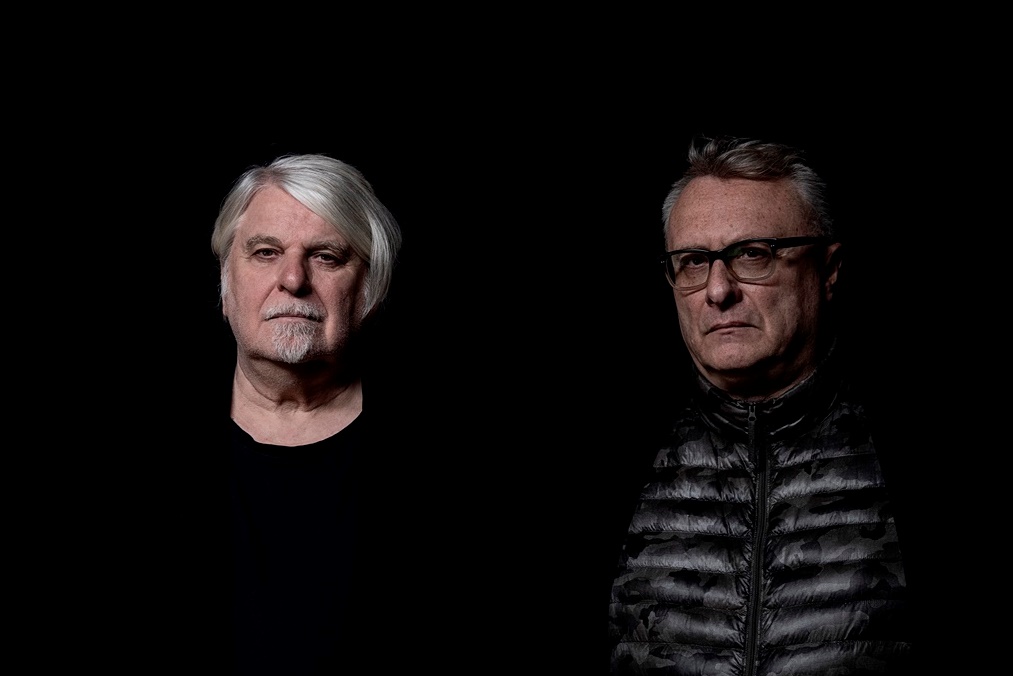
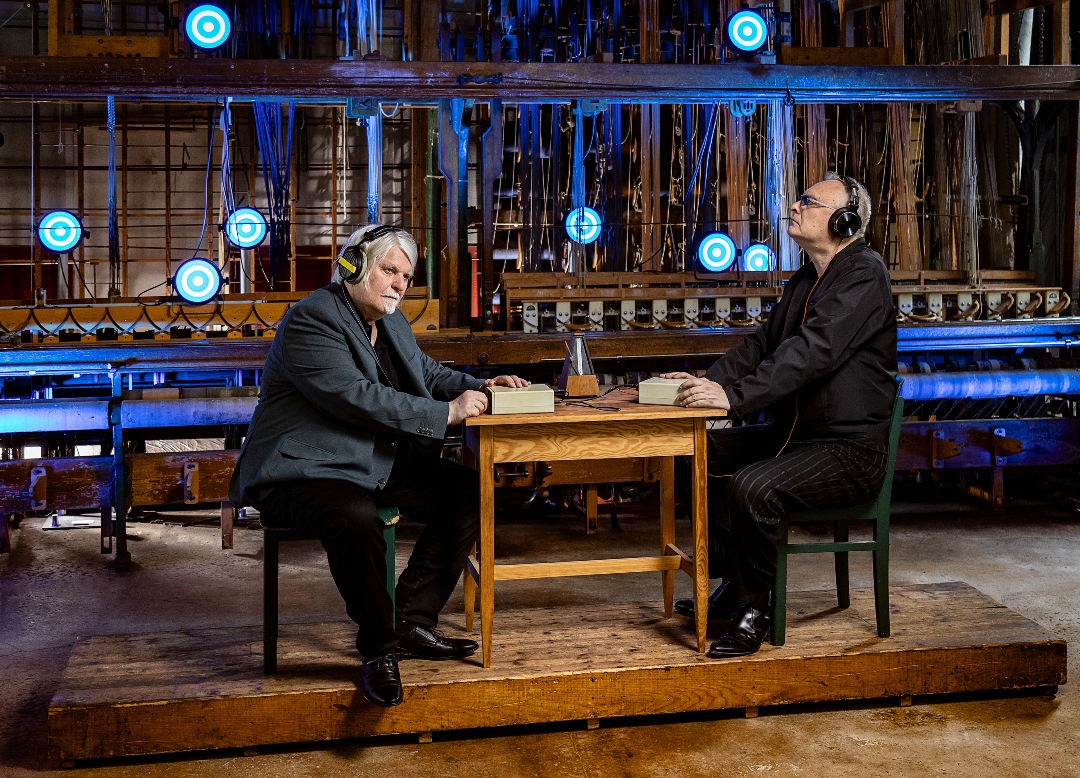
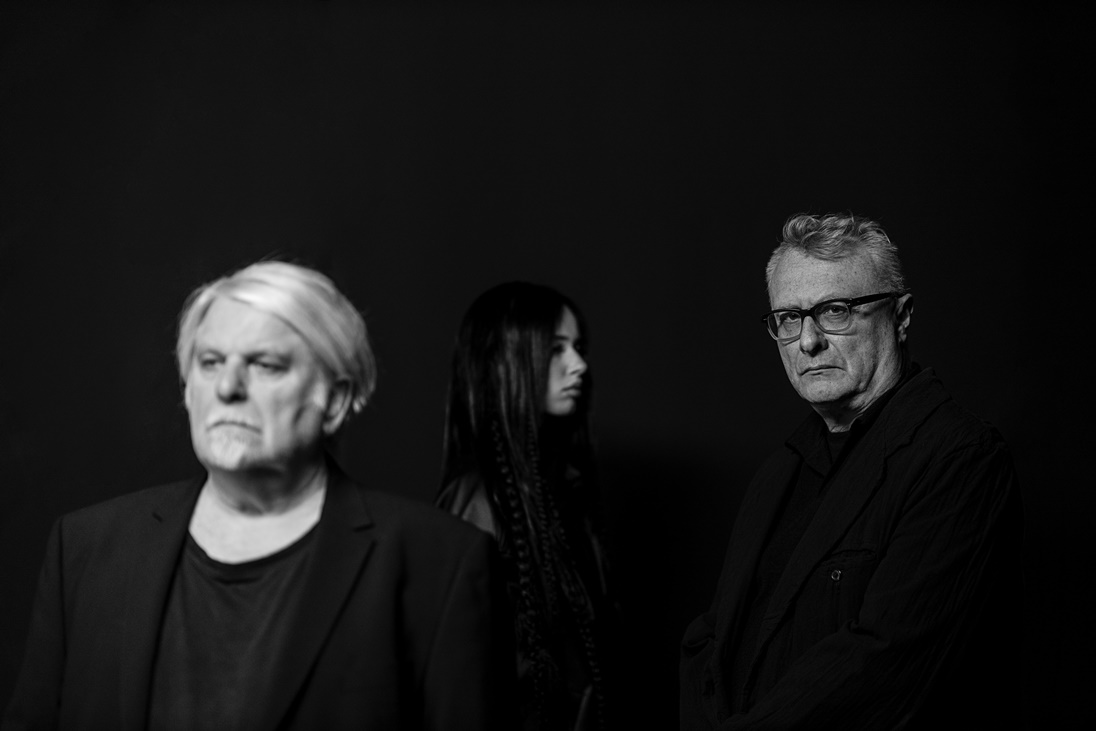
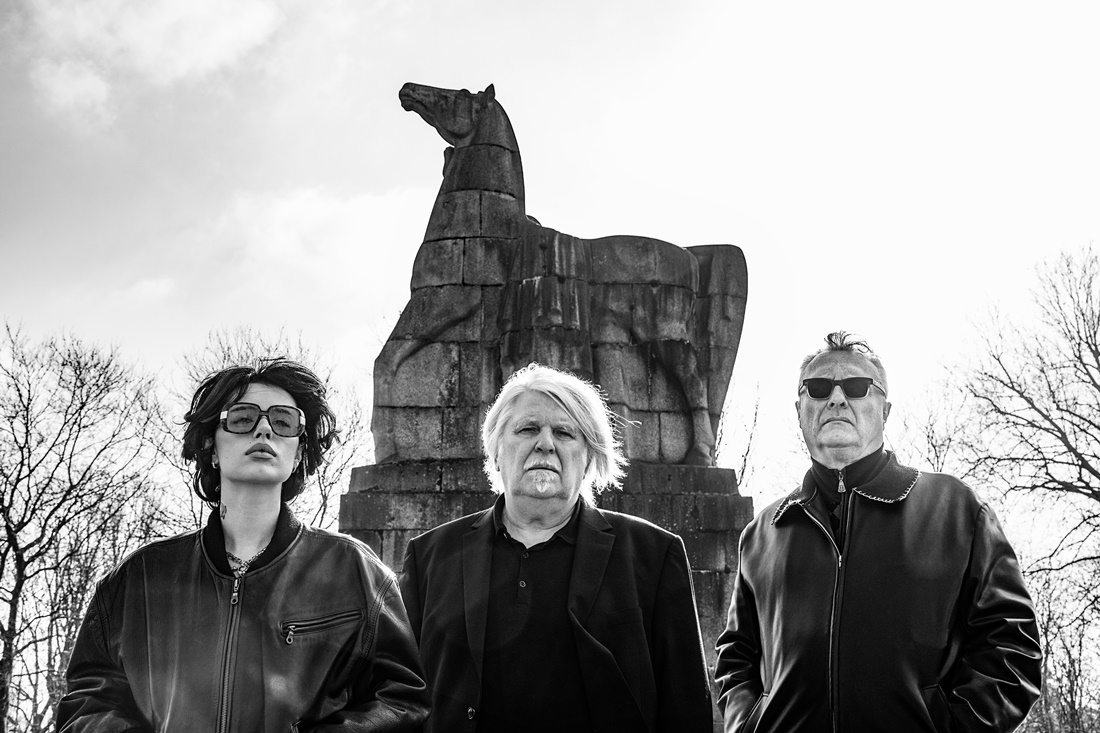
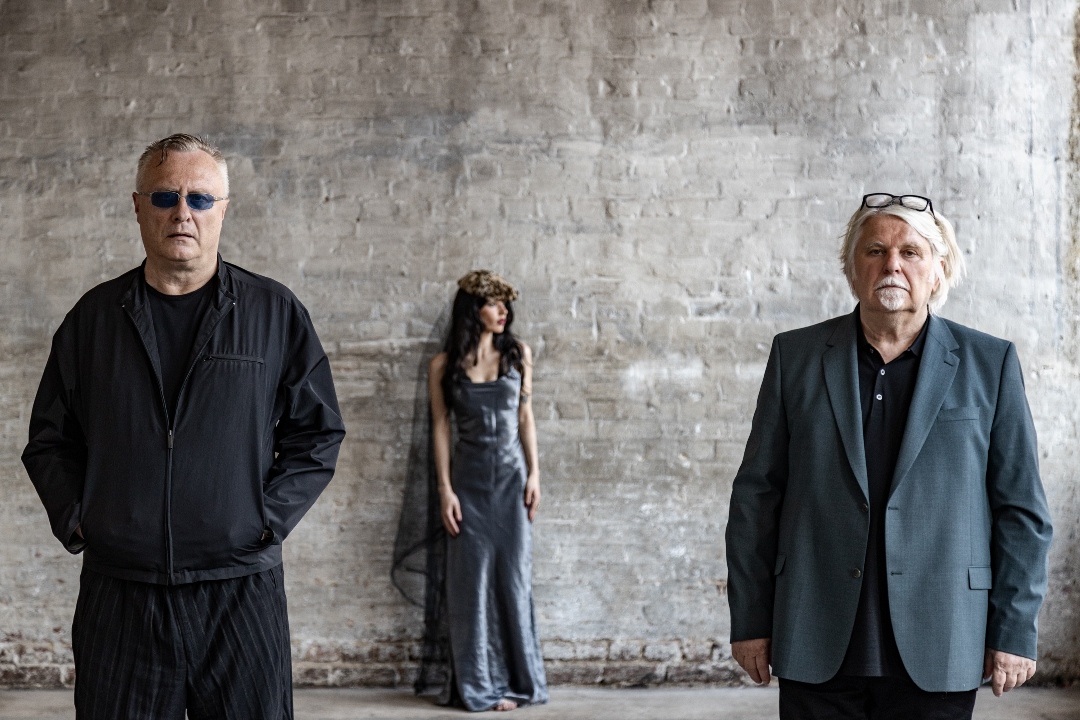
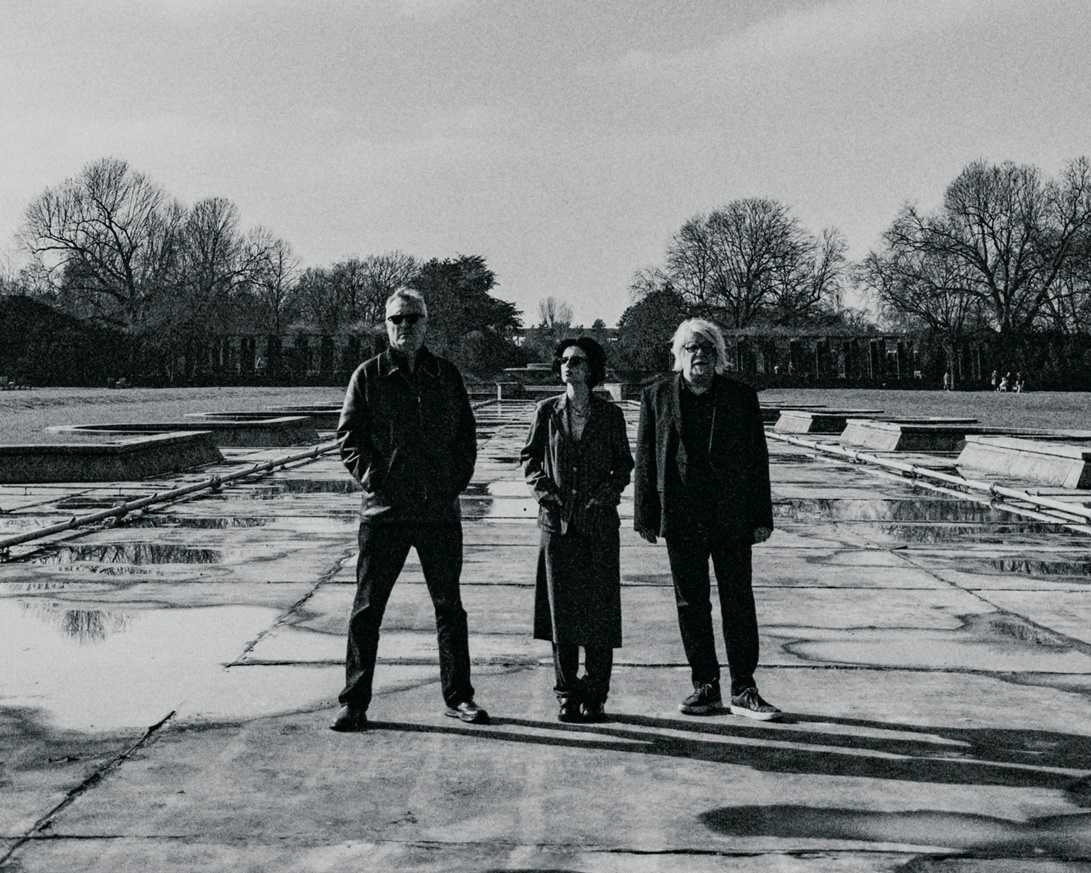
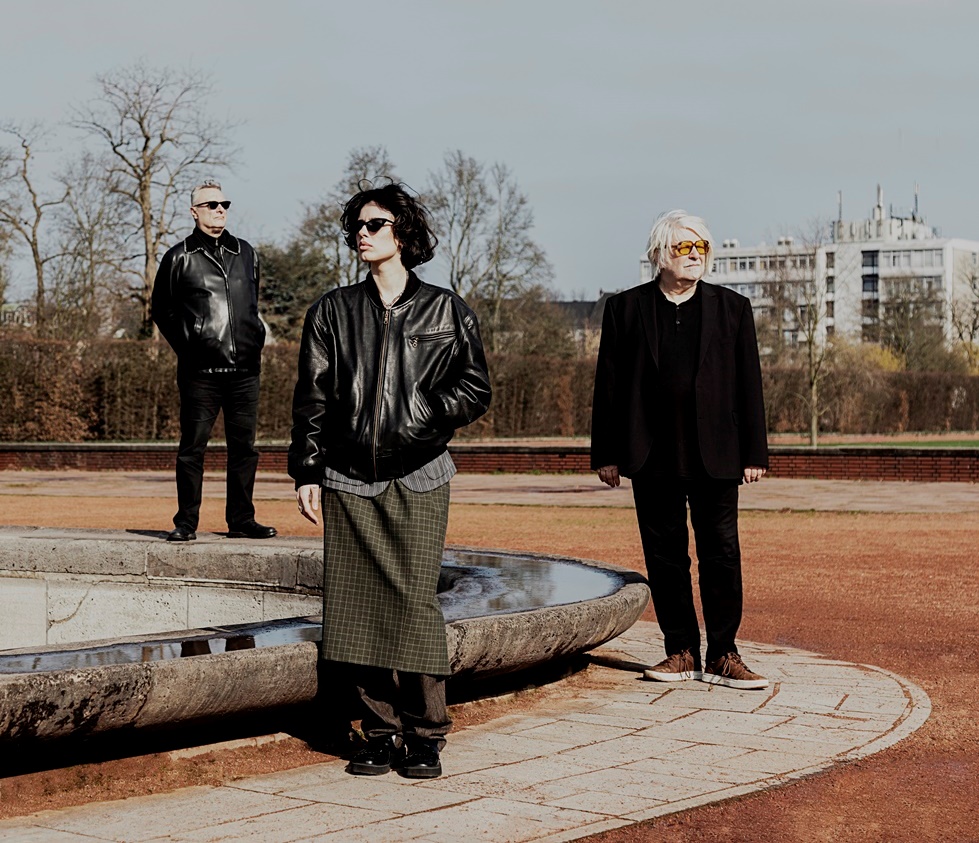
Follow Us!